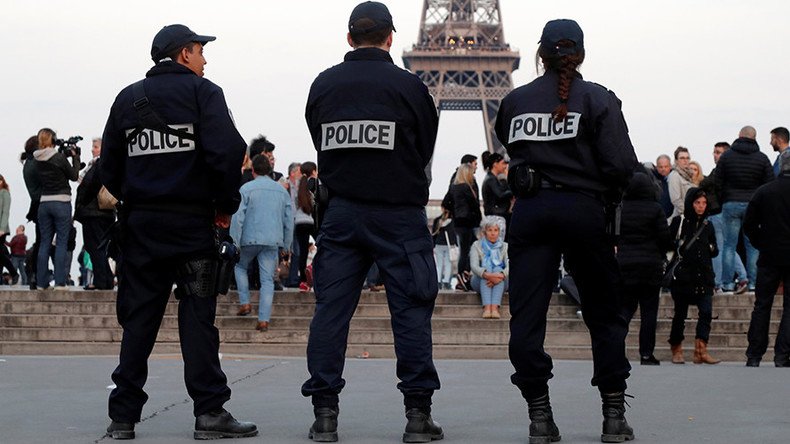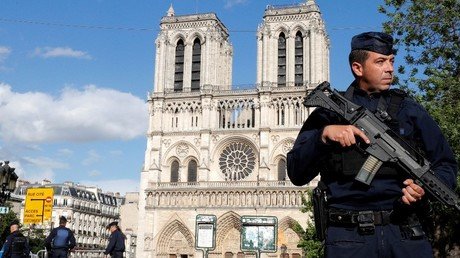‘Not a crime but war’: Terrorists must be tried by military courts, believes Le Pen

Terrorism cases should be heard by special courts, possibly involving the military, prominent French right-wing politician Marine Le Pen has said, adding that terrorism should be treated as an “act of war.”
Le Pen’s comments were made in an interview with the Le Parisien Newspaper Friday. She was responding to a question on what amendments her party is preparing for the counter-terrorism bill that aims to replace powers under the current state of emergency.
While declining to elaborate further on the details of the amendments, she did propose the idea of creating special courts to judge terrorism-related cases.
“Unlike Macron, the Republicans... we do not believe that terrorism is a crime like any other. It must become the target of a dedicated fight,” Le Pen told the newspaper.
“There should probably be a dedicated jurisdiction. Why not the equivalent of the former Cour de sûreté de l'État (State Security Court)? Since terrorism is an act of war,” she added.
Currently, terrorism cases in France fall under the jurisdiction of the Courts of Assizes (Court of Sessions). The court is composed of three judges and nine jurors, but when hearing cases involving terrorism, the drug trade and other “special” offenses, the court may sit with only three judges.
The State Security Court, referred to by Le Pen, was a special judicial body which existed in 1960 to the ‘80s. Its mission was to judge crimes against national security, including espionage and terrorism. The main difference between this body and the contemporary Court of Sessions, is that it included two military officers, with the rank of at least a General, complementing the three judges.
READ MORE: Forget Brexit, now even France and Germany want the right to end EU free movement
In July, French senators adopted the text of the controversial 'Strengthening Internal Security and Combating Terrorism' bill, passing it to the lower house (National Assembly) for debate in September.
After securing the presidency in May, newly inaugurated President Emmanuel Macron requested that parliament extends the state of emergency until November 1, while asking lawmakers to draft a counter-terrorism bill aimed at dealing with extremists.
READ MORE: Man with knife attacks soldier in Paris
The state of emergency was introduced in France following the attacks in Paris in November 2015 which killed over 130 people. Since then, it’s been extended six times.
Under the state of emergency, authorities have the power to place people under house arrest, order house searches and ban public gatherings without the prior approval of a judge.
Some of these powers will become permanent under the proposed law, a move condemned by rights groups. The National Assembly started debating the bill on September 12.
Human Rights Watch this week called on French lawmakers to "amend abusive measures" in the legislature, arguing the bill "would move a number of emergency powers into ordinary law without adequate safeguards."
“Measures appropriate to a state of emergency would become a permanent feature of French life under this proposed law, which would put national security above all other considerations and would jeopardize civil liberties, including the freedom to inform," Reporters Without Borders also warned.
Proponents of the legislation, led by the president himself, believe the new measures proposed in the bill are necessary to secure the nation from terrorism.
Following the deadliest terrorist attack in French history, which left 130 people dead on the streets of Paris in October 2015, the country has suffered from a number of attacks claimed by IS (Islamic State, formerly ISIS/ISIL/Daesh terrorist group).
Another deadly attack followed on Bastille Day in Nice in July 2016, when a 19-tonne cargo truck was deliberately driven into crowds. At least 86 people were killed while over 450 others sustained injuries.
Just last Friday, an individual armed with a knife threatened a soldier patrolling the Châtelet metro station in Paris. The man was arrested without being able to hurt the soldier. On approach the attacker allegedly made statements referring to ‘Daesh.’
In August, authorities revealed that some 217 adult French nationals have returned to France from fighting in conflicts in the Middle East.














